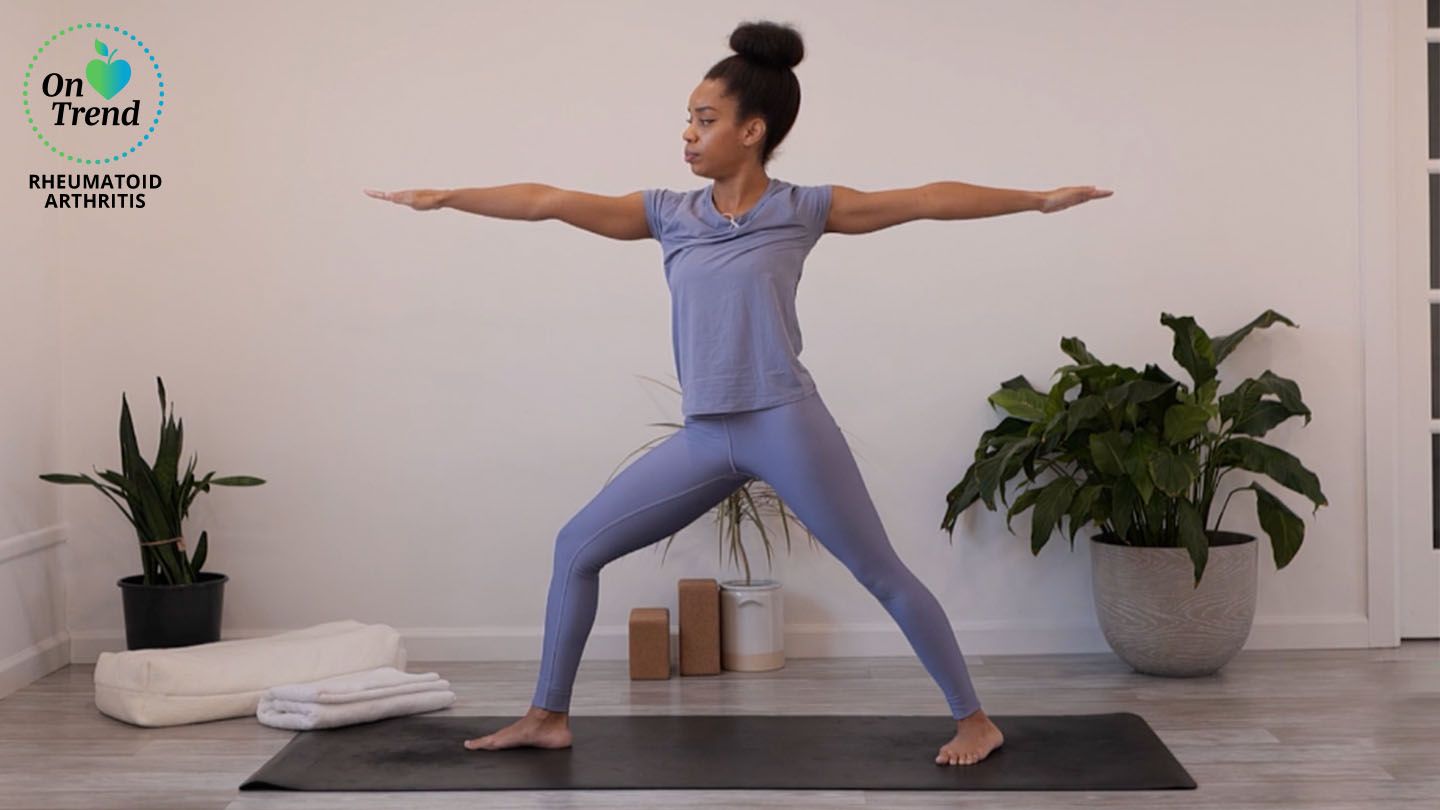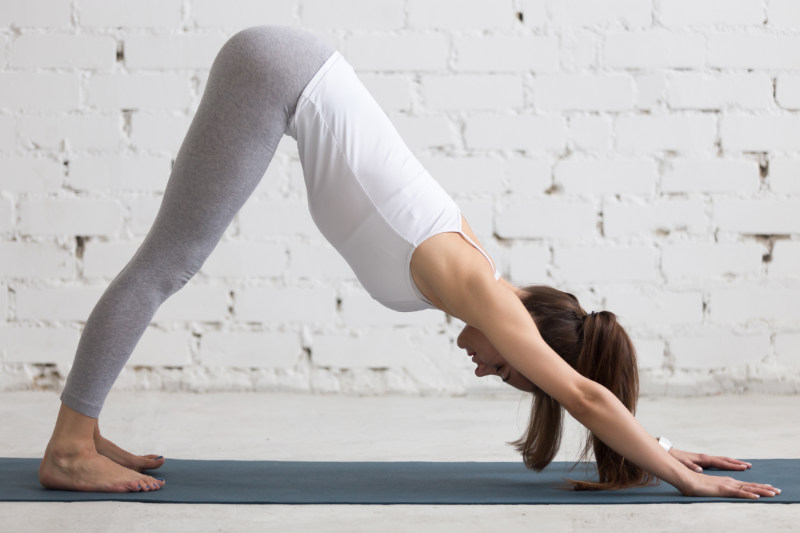
Yoga for Arthritis, a non-profit organization, is dedicated to the promotion of yoga for arthritis. They offer yoga trainings based on scientific research for arthritis patients and health professionals. The classes and trainings they offer are tailored to the specific needs of patients with arthritis. Yoga for Artstritis offers yoga teacher training to increase yoga for arthritis. You can sign up for a free class, or become a yoga instructor for someone with arthritis.
Yoga and arthritis are closely related. It is important that you talk to your doctor before beginning any physical activity. Your doctor will be able to set limitations that will make it easier for your to practice yoga. Consider classes that are specifically for arthritis sufferers. Instructors must have experience and be certified. Your instructor should know that you have joint pain. Based on your pain, a teacher can modify poses.

People with arthritis often recommend yoga. Certain poses are helpful for people with the condition and can correct a deformed posture. These positions are also beneficial for those with sexual issues. The neck is a common area affected by arthritis. These exercises can help relieve the pain by gently pulling the neck backwards. To begin, lie on your back flat and bend your knees. Your feet should be about hip-distance apart. Next, bend your knees at the knees and lift your head off of the ground.
Although yoga is safe and effective for those with arthritis, it's important to check with your doctor before you start. You should consult an orthopedist if you are experiencing joint pain in your back or neck. As with any exercise, it is important that you ask about the potential side effects and dangers of yoga. It is vital to find out what type of yoga poses are safe for you without making the pain worse.
Although there isn't any definitive evidence that yoga can improve rheumatoid, it has been shown to help. However, there are some poses that can cause pain. Tree pose can cause pain to the joints. This pose can worsen rheumatoid joint pain. Meditation, breathing, relaxation, and meditation can all help with pain management. You can also try breathing exercises and meditation to control the symptoms. This will lower your symptoms and increase your quality of living.

For people suffering from arthritis, asanas for arthritis can be very beneficial. These asanas can help relax various joints. Simple leg-to-leg movements are a yoga asana that can relieve pain in the hands. It can increase flexibility in the hands, arms, wrists, neck, and wrists. Some poses also target the back muscles and the chest muscles. While many benefits of yoga are well known, it is important to understand the side effects and limitations of the practice to find the right fit for your body.
FAQ
How can I avoid mental health issues in the future?
It is not easy to prevent mental health problems. But, here are some tips to keep in mind:
-
Don't drink alcohol. Alcohol can affect your moods and increase your risk of depression.
-
Avoid using drugs. Drugs can affect your brain chemistry and make you feel worse.
-
Sleep well. Anxiety and depression can result from sleep deprivation.
-
Exercise regularly. Exercise is good for your mood and makes you feel happier.
-
Choose healthy foods. Junk food can make you feel lazy and unwell.
-
Spend quality time spending it with loved ones. Spending time with people you love can make you feel happier.
-
Have fun. Enjoy your life and be open to new experiences.
-
It is important to take breaks from social networking. Social media can make you feel isolated and lonely.
-
Be kind to yourself. Treat yourself nicely, even if you aren't feeling great.
-
Ask for help. Ask for help. Talking to your family member or friend can be very helpful.
-
It's okay for you to cry. The act of crying helps relieve stress and tension. It doesn't necessarily signify that something bad has happened.
-
Keep busy. Do something that you love.
-
You should practice good hygiene. Bad hygiene can make it difficult to feel attractive and clean.
-
Keep in touch. Connecting with others will help you stay positive.
-
Learn how you can relax. Meditation and yoga can be helpful in reducing stress.
-
Find meaning in what your do. Find meaning in your hobby or work can bring you fulfillment.
-
Focus on the present moment. When you focus on the present moment, you won't worry so much about the future.
-
Set goals. Set goals will motivate you to achieve them.
-
Do something nice for you. Being kind to yourself can help boost self-esteem.
-
Practice gratitude. Gratitude can help to appreciate all the blessings in your life.
-
Volunteer. Volunteering can provide a rewarding way to spend time with friends and make an impact on the world.
-
Give back. Giving back can help you feel fulfilled.
-
Be aware of warning signs. If you notice any changes in behavior, don't hesitate contacting help.
Is it possible that I am depressed?
Depression is a very common problem for teens. Yet, depression is common among teenagers.
This does not mean you are weak or crazy. Most people who are depressed aren't aware of it. Depression can be a medical condition.
There are different kinds of depression. Some people only experience sadness while others experience other emotions too. There are different levels of severity.
Some people suffer mild depression, others are more severe. Depression is not always bad. Sometimes it can help us deal with stressful events.
If you are constantly feeling sad, tired, or demotivated, it's a good idea for you to visit a doctor. Your doctor can diagnose you and determine whether you need treatment.
Why is it important for improving emotional health?
Well-being and happiness are tied to emotional well-being. A person who isn't emotionally well will be unable to perform at their best. Depression can make it difficult for people to perform at their best. You may also feel anxiety, panic attacks, insomnia and other symptoms. The good news about these conditions is that they can be successfully treated using medication and therapy.
Statistics
- Neuropsychiatric diseases are the leading cause of death and disability in the U.S., accounting for 18.7 percent of all years of potential lifespan loss and premature mortality.
- It does have some influence, but not nearly as much as we might think, so focusing less on attaining wealth will likely make you happier (Aknin, Norton, & Dunn, 2009); (positivepsychology.com)
- Similarly, while there is some agreement about the boundaries of typical mental disorders 2, there is likely less agreement about those for positive mental health. (ncbi.nlm.nih.gov)
- More than 40 million adults in the United States have an anxiety disorder, but less than 37% of people seek mental health treatment for their symptoms. (talkspace.com)
- According to the National Alliance of Mental Illness (NAMI), one in five Americans experiences mental health issues which translates to more than 40 million adults a year. (doctorondemand.com)
External Links
How To
How to Handle Stress
Stress is a natural part of our lives. But when we feel stressed, it's important to find ways to relax. Stress can have a negative impact on every part of your life. Stress can cause physical problems, including headaches. You may even develop ulcers if you're under chronic stress.
There are many things you can do to reduce stress. Exercise is a great way to release endorphins. This makes you happy, relaxed, as well as calm. Meditation can reduce stress levels by slowing down and taking deep breaths. Yoga is another great way of reducing stress and improving overall health.
Learning how to manage stress and eliminating it completely is the best way to manage it. Ask someone who does.